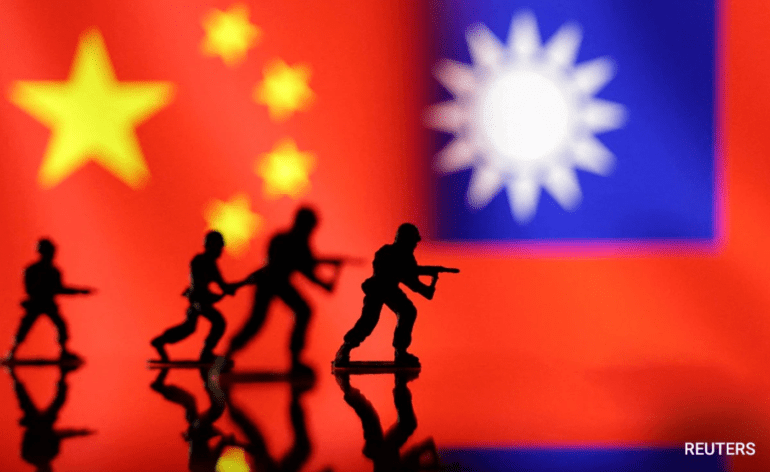- Microsoft warns of China’s plan to disrupt elections in India, US, and South Korea using AI-generated content.
- Discussion between Bill Gates and PM Modi on AI’s role in societal development.
- Globally, 64 countries, along with EU, set for national elections, covering almost half of the world’s population.
- Chinese state-backed cyber groups, possibly aided by North Korea, are expected to target elections in 2024.
- China is likely to use AI-generated content via social media to influence public opinion in targeted elections.
- Threat of political ads utilizing AI technology, including “deepfakes,” to mislead voters.
- China’s increasing experimentation with AI poses potential long-term risks to electoral integrity.
- Examples of AI-driven disinformation campaigns during Taiwan’s election and in the US.
- India’s upcoming elections prompt proactive measures by the Election Commission to combat AI misuse.
Main AI News:
Microsoft has issued a stark warning regarding China’s intentions to disrupt forthcoming elections in India, the United States, and South Korea through the deployment of AI-generated content. This cautionary alert follows China’s experimental foray during Taiwan’s presidential election, where AI was utilized to manipulate the electoral landscape.
Recently, Microsoft’s co-founder Bill Gates engaged in discussions with Prime Minister Narendra Modi in New Delhi, deliberating on the utilization of AI for societal advancement, empowerment of women, and innovations in healthcare and agriculture.
Globally, approximately 64 nations, in addition to the European Union, are poised to conduct national elections, representing nearly half of the world’s population.
Microsoft’s threat intelligence experts predict that Chinese state-sponsored cyber units, with potential collaboration from North Korea, will target several elections scheduled for 2024. The modus operandi is anticipated to involve the dissemination of AI-generated content across social media platforms to sway public opinion in favor of China’s strategic interests.
“In light of the significant elections scheduled globally this year, particularly in India, South Korea, and the United States, our assessment indicates that China will, at the very least, orchestrate and amplify AI-generated content to serve its objectives,” Microsoft stated in a press release.
The Menace of AI in Electoral Processes
The looming threat posed by political advertisements employing AI technology to fabricate deceptive and false narratives, including the creation of “deepfakes” or fictitious events, is profound in this pivotal electoral cycle. These tactics aim to deceive the electorate regarding candidates’ positions on various issues, thereby potentially undermining the integrity of the electoral process.
While the immediate impact of AI-generated content may seem minimal, Microsoft cautions that China’s persistent experimentation with this technology could yield more potent outcomes over time. China’s previous endeavor to influence Taiwan’s election through AI-driven disinformation represents a concerning precedent, marking the first instance of a state-backed entity deploying such tactics in a foreign election.
During the Taiwanese election, a group affiliated with Beijing, dubbed Storm 1376 or Spamouflage, actively disseminated AI-generated content, including fabricated endorsements and memes, with the objective of tarnishing certain candidates and shaping voter perceptions. Similar tactics involving AI-generated TV news anchors have been observed in other contexts, such as in Iran.
The Influence of AI in US Political Affairs
Microsoft highlights ongoing efforts by Chinese entities to conduct influence campaigns within the United States, leveraging social media platforms to propagate divisive narratives and gather intelligence on key demographics.
“There has been a surge in the utilization of Chinese AI-generated content in recent months, aiming to sow discord and influence public opinion in the US and elsewhere on a myriad of issues,” Microsoft reported.
While evidence of the effectiveness of these endeavors remains scant, instances such as the AI-generated phone call during the 2024 New Hampshire Democratic primaries, which falsely imitated President Joe Biden’s voice, underscore the direct threat posed by AI to democratic processes.
Looking Ahead: Safeguarding India’s Electoral Integrity
India’s forthcoming general elections, scheduled to commence on April 19 and conclude on June 4, present a critical juncture for safeguarding the integrity of the electoral process. The Election Commission of India (ECI) has already outlined protocols for swiftly identifying and addressing false information and misinformation.
In a proactive measure to combat the misuse of AI, representatives from OpenAI, developers of ChatGPT, recently engaged with the Election Commission of India, presenting comprehensive strategies to mitigate the risks associated with AI-generated content in the electoral arena.
Conclusion:
The revelation by Microsoft underscores the growing threat posed by AI-driven disinformation campaigns in electoral processes worldwide. Businesses operating in the digital landscape should be vigilant and invest in robust cybersecurity measures to safeguard against potential manipulation and ensure the integrity of democratic practices. Additionally, advancements in AI technology necessitate continuous adaptation and regulation to mitigate the risks of misuse and preserve trust in democratic institutions.

